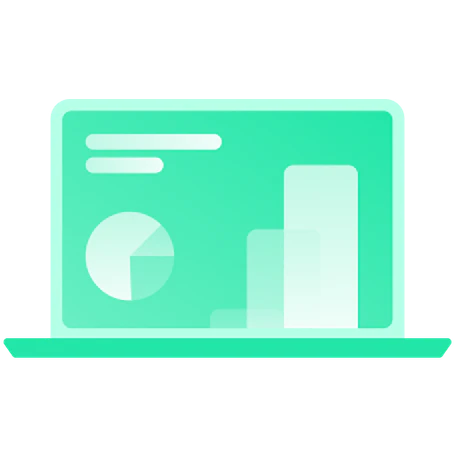Scraper API Tool for Website Change Monitoring & Tracking
Whether your goal is to check your own website for errors and defacement or track other web pages for vital updates, Web Scraper API is the solution. This tool handles complex targets and fetches public data in real time, ensuring nothing escapes your eyes.
Maintenance-free infrastructure
Real-time data without IP blocks
JavaScript rendering for complex targets

Perform website change tracking at scale
To promptly react to changes in the digital landscape, you need to constantly monitor web pages for changes. With Web Scraper API’s in-built global proxy infrastructure, you can send virtually unlimited requests and access geo-restricted content.
Real-time HTML tracking
The online world is highly dynamic, with web pages changing every second. A properly set up web page checking routine is what you need to troubleshoot emerging issues on the move. Use Web Scraper API to track web page elements and HTML code updates in real time. This way, you can be sure that no essential data is slipping away.
Possible risks
Intensive web scraping may result in IP blocks and other unfortunate obstacles.
How can we help?
Web Scraper API performs quality web page content monitoring and detects the tiniest visual changes.
Effortless monitoring for complex targets
We have bad news and good news. The bad news is that most websites, including hotel, flight, and other pages, are usually dynamically loaded. This adds an extra layer of complexity for monitoring your targets. But the good news is that you can handle it with the help of Web Scraper API, saving your time and resources.
Possible risks
To get the data from complex targets, you need a website change tracker to cope with JavaScript rendering.
How can we help?
With Web Scraper API, you can easily set up JavaScript rendering parameters and obtain HTML from dynamic pages.
Track web page changes for any device
Don’t let an inefficient website change detection tool dictate what you can and can’t do. If you want to track how websites adjust the content based on the visitor's device, go ahead and make the most of it. No matter whether you target desktops, tablets, or mobile gadgets, with Web Scraper API, you can efficiently monitor website changes for any device and browser.
Possible risks
To detect and track HTML on any device, you need a tool that will set parameters according to your needs.
How can we help?
With Web Scraper API, you can specify any user agent and track content elements across various user types.
Try Web Scraper API for website change monitoring
Web Scraper API is an AI-empowered solution meant to fetch real-time public data from the most challenging websites. Web Scraper API is perfect for website change tracking as it’s packed with useful features:
IP block management
JavaScript rendering for complex targets
Auto-retry system for failed scraping attempts
Word from a customer
One of our biggest priorities is to ensure that the experience of our clients remains positive over an extended period. They have constant access to professional guidance and 24/7 assistance to address any issues or uncertainties.
Added benefits of Web Scraper API
Easy to integrate
You can easily integrate Web Scraper API and get raw data from your targets
Worldwide availability
Collect data from any location in the world with avg. 99.9% uptime
Hassle-free data extraction
We handle proxy management from our side, so you don’t have to.
Scrape at scale
Send high volumes of requests utilizing Oxylabs 102M+ proxy pool
No CAPTCHAs
Extract data efficiently without CAPCTHAs and IP blocks
24/7 support
Our Customer Success team is always ready to help you out with any issue.
*All results from the target site with 2xx or 4xx status codes are counted as successful.
Certified data centers and upstream providers
All of our products are insured
All of our products are covered by Technology Errors & Omissions (Technology E&O) and Cyber Insurance.
Useful resources
Web Scraper API Quick Start Guide
Find out all you need to know about Web Scraper API
How to Extract Data from A Website?
Learn about the data extraction process and how it works
Reducing Data Acquisition Costs
Learn how a search intelligence company reduced web scraping costs
Frequently asked questions
How do I monitor a website for changes?
To monitor web page code changes, you need to use a specialized website monitoring API, such as Web Scraper API. The process of monitoring website changes with Web Scraper API involves the following steps:
1. Choose target URLs;
2. Retrieve the content using Web Scraper API by submitting the URL with additional parameters like user location, device type, etc.;
3. Repeat the previous step regularly, for example, once a day, week, or month to capture changes;
4. Compare the results to see what changes were made.
In our documentation, you can learn more about the data-gathering cycle with Web Scraper API.
How can I be notified when a website changes?
Web Scraper API allows you to set up notifications once the raw data is ready to be fetched. As for the alert if website changes, you have to set them up on your end.
Scale up your business with Oxylabs®
GET IN TOUCH
General:
hello@oxylabs.ioSupport:
support@oxylabs.ioCareer:
career@oxylabs.io
Certified data centers and upstream providers
Connect with us
Advanced proxy solutions
Resources
Innovation hub